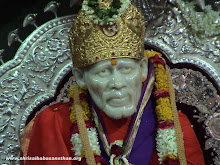 George Washington :-
George Washington :-April 30, 1789 to March 4, 1797
* be a natural born citizen of the United States;
* be at least thirty-five years old;
* have been a permanent resident in the United States for at least fourteen years.
Additionally, the Constitution disqualifies some people from the Presidency. Under Article I, Section 3, Clause 7, the Senate has the option, upon conviction, of disqualifying convicted individuals from holding other federal offices, including the Presidency.[5] Also, Section 3 of the Fourteenth Amendment prohibits any person who, having sworn an oath to support the United States Constitution, and later rebelled against the United States, from being eligible to serve as President, unless each house of the Congress has removed the disqualification by a two-thirds vote. Under the Twenty-second Amendment, no one can be elected President more than twice. The Twenty-second Amendment also specifies that anyone who serves more than two years as President or Acting President, of a term for which someone else was elected President, can only be elected President once. Scholars disagree whether a person no longer eligible to be elected President could be elected Vice President, pursuant to the qualifications set out under the Twelfth Amendment.[6]
Foreign-born Americans at the time the Constitution was adopted were also eligible to become President, provided they met the age and residency requirements.
The United States government was non-partisan before 1792, so the Constitution says nothing about political parties. From 1796 to the Civil War, it was common for political parties to fracture and put forward more than one candidate. The classic example is the 1824 election, in which political parties officially played no role because all of the candidates were from the same party. This also was the only election in which the recipient of the most Electoral College votes (Andrew Jackson) did not become President (as he did not have a majority). The election was then decided by the House of Representatives, which elected John Quincy Adams instead.
The Civil War showed how dangerous political fracture could be for the nation, with the result that the two largest parties at the time – Democratic and Republican – remade themselves into broad coalitions of liberals and conservatives. Consequently, all Presidents since the Civil War have been nominees of one of these two major political parties.
Finally, while they are not in any way requirements:
* Of the forty-three[7] persons to have been President, thirty-one had prior military service; of those thirty-one, all but one—James Buchanan—served as an officer.
* Every President has had prior experience as a Representative, Senator, Cabinet Secretary, Governor, General in the United States Army or as Vice President of the United States.
Although the Presidency entails numerous foreign obligations and policy issues, many Presidents have had limited or no understanding of a language other than English. Early 19th century Presidents such as John Adams, Thomas Jefferson, James Monroe and John Quincy Adams were fluent in French, the diplomatic language of the time (John Quincy Adams spoke Dutch and German as well). However, since the 1840 defeat of Martin Van Buren (whose first language was actually Dutch), few Presidents have had the ability to speak a second language fluently; one notable exception, Theodore Roosevelt, spoke French and German. Written Latin and Greek were once commonly known to Presidents as hallmarks of a classical education, but their influence has declined over time.

No comments:
Post a Comment